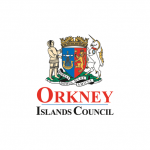

Councillors approve budget for the year ahead
 As expected, Orkney Islands Councillors today, Tuesday, formally approved the budget for the authority for the financial year ahead, a move which will see a rise in council tax for the county.
As expected, Orkney Islands Councillors today, Tuesday, formally approved the budget for the authority for the financial year ahead, a move which will see a rise in council tax for the county.
A short special general meeting of the OIC was held this morning, where councillors gave their backing to the previously agreed budget, with only one minor operational change to the way in which funds from the council culture fund are allocated.
As previously agreed at the policy and resources committee earlier this month, after a nine-year freeze, council tax in Orkney will rise by three per cent, while £7 million is to be drawn from the OIC reserves to help support the cost of running services, due to a shortfall in funding from the Scottish Government.
Councillors earlier recommended that £82 million should be spent on running council services in 2017-18, while savings of £842,000 should be found in the year ahead.
This follows a reduction of £1.1 million in the funding the council will receive from the Scottish Government to run services in 2017-18.
Councillors approved that the council tax charge, a rise of three per cent, would increase the Band D annual charge from £1,037 to £1068.
Councillors also backed that funding support for the voluntary sector increase by 1 per cent for the seventh year running, after a move from Councillor Russ Madge gained support at the policy and resource meeting, while praising the valuable work the sector does in supporting services here in Orkney.
Councillors also earlier recommended that existing fees and charges for council services should increase by at least three per cent from April 1, this was also agreed as the budget was approved.
Exceptions include Orkney Ferries fares, charges for planning applications and building warrants, licensing fees, car parking, trade waste collections, and social care charges that are set by legislation.
The authority earlier stated that the funding situation will result in a reduction of the council’s workforce by the equivalent of 8.3 full-time equivalent posts (FTE). Of these, 2.5 FTE posts are currently vacant.
For the remaining posts, the authority earlier stated that intention would be to avoid compulsory redundancies if at all possible and look instead at alternatives such as redeployment, voluntary redundancy and retirement.